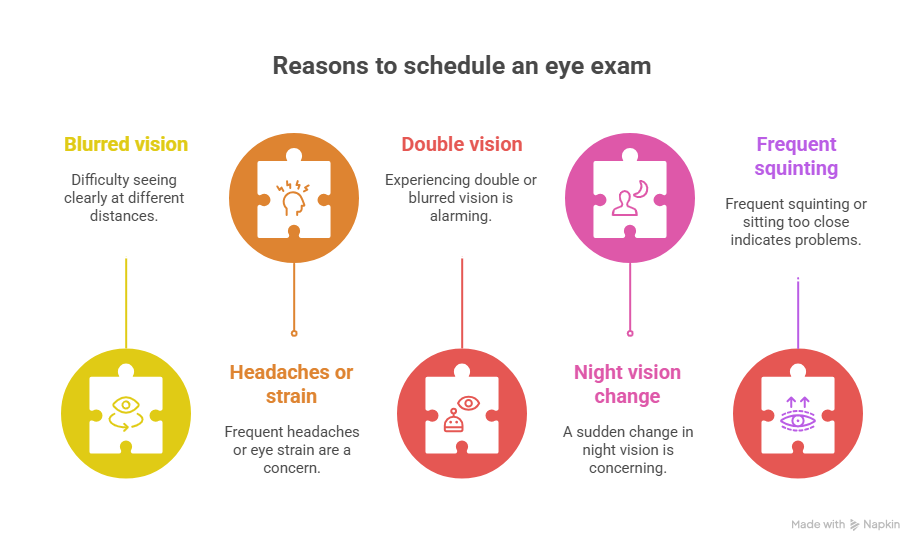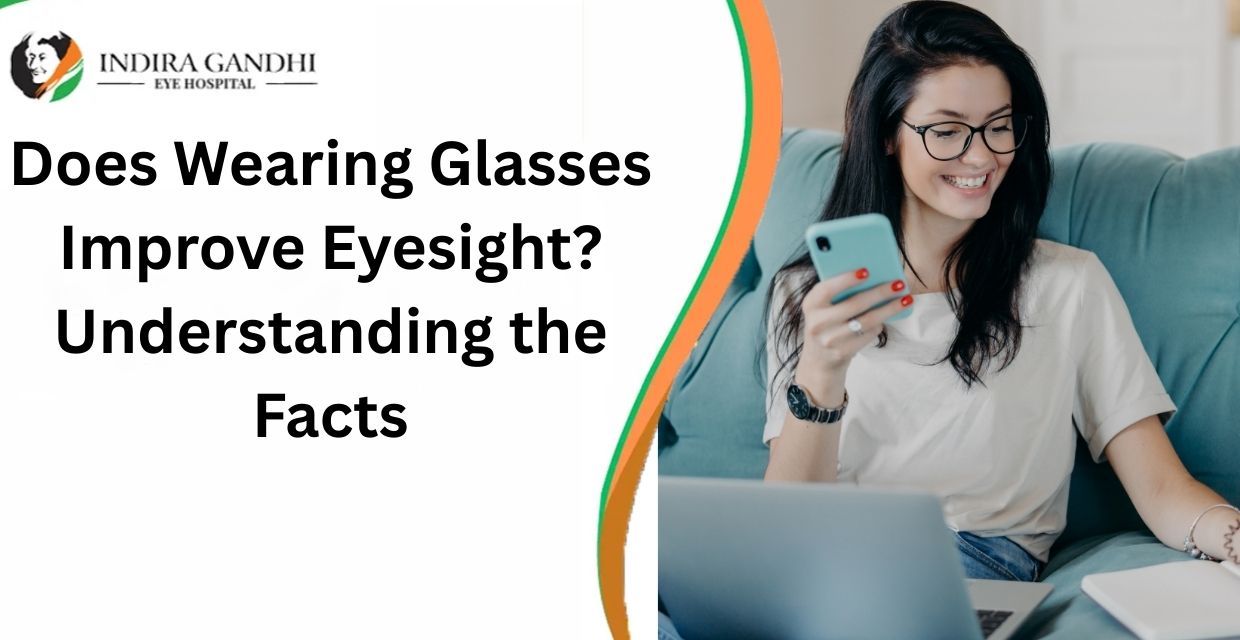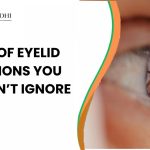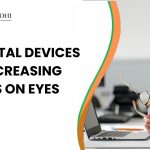|
Getting your Trinity Audio player ready...
|
If you’ve ever wondered whether wearing glasses improves eyesight, you’re not alone. Glasses are one of the most common ways to correct vision problems, but many people aren’t sure about the exact role they play in eye health. Do glasses actually improve eyesight, or do they simply help you see more clearly for the time being?
At Indira Gandhi Eye Hospital & Research Centre (IGEHRC), we believe that understanding how glasses work is an important part of maintaining good eye health. In this blog, we will explore the truth behind the question: does wearing glasses improve eyesight? We’ll look at what glasses do, how they help with vision, and whether they can lead to long-term improvements in eye health.
What Do Glasses Do for Your Eyes?

Before answering the question of whether glasses improve eyesight, it’s important to understand what they do. Glasses are designed to correct refractive errors, which occur when the eye is unable to focus light properly on the retina. There are several types of refractive errors, including:
- Nearsightedness (Myopia): When distant objects appear blurry because light is focused in front of the retina.
- Farsightedness (Hyperopia): When nearby objects appear blurry because light is focused behind the retina.
- Astigmatism: A condition in which the eye has an irregular shape, causing blurry or distorted vision.
- Presbyopia: Age-related loss of the ability to focus on close-up objects, typically starting after the age of 40.
When you wear glasses, the lenses are carefully shaped to bend light in a way that helps your eye focus it correctly onto the retina. By doing so, glasses enable you to see more clearly and comfortably.
Do Glasses Improve Eyesight or Just Help You See Better?
So, does wearing glasses improve eyesight in the sense of enhancing your eye health? The answer is a bit nuanced.
Glasses do not improve the physical health of your eyes. They do not correct the underlying causes of refractive errors or reverse eye conditions like nearsightedness or farsightedness. However, they do significantly improve your vision by compensating for these errors. In other words, while glasses don’t make your eyes healthier or fix the issue permanently, they do help you see more clearly, which can make a huge difference in your day-to-day life.
Do Glasses Have Any Long-Term Benefits?
Now that we’ve discussed the primary role of glasses in helping you see more clearly, let’s address whether they offer any long-term benefits for eye health. It’s a common belief that wearing glasses all the time might weaken your eyes, but this is not true.
Glasses and Eye Health
Wearing glasses does not harm your eyes or cause them to become weaker over time. In fact, wearing the right prescription glasses can reduce eye strain, headaches, and fatigue caused by squinting or trying to focus. By improving visual clarity, glasses make it easier for your eyes to work efficiently and comfortably.
However, it’s important to note that glasses only correct your vision temporarily. They do not change the underlying refractive error in your eye. For example, if you are nearsighted, wearing glasses will help you see better, but it won’t “cure” your nearsightedness or make your eyes less nearsighted. The prescription will likely need to be updated periodically as your vision changes over time.
Can Glasses Help Prevent Eye Problems?
While glasses don’t directly permanently improve eyesight, they can help prevent certain eye problems from worsening. For example, wearing glasses with the correct prescription can:
- Reduce Eye Strain: If you’re constantly straining to see, your eyes can become fatigued, leading to headaches, blurry vision, and discomfort. Glasses help prevent this strain by improving focus and clarity.
- Prevent Further Vision Deterioration: By ensuring you are seeing clearly, glasses can help you avoid making the situation worse. For instance, people with uncorrected refractive errors may find themselves squinting or straining to see, which could lead to additional eye discomfort and worsened vision over time.
- Improve Comfort in Daily Activities: If you have trouble reading or focusing on objects close up or far away, wearing glasses can help make tasks like driving, reading, and working on a computer more comfortable and safer.
So, while glasses don’t “cure” vision problems or improve eyesight in a permanent sense, they certainly help prevent further issues and make it easier to carry out daily activities.
When Should You Visit an Eye Specialist?

Even though glasses are an effective way to manage refractive errors, it’s still important to regularly visit an eye hospital for check-ups. At Best Eye Hospital in Amethi, we recommend scheduling an eye exam if you notice any of the following:
- Difficulty seeing clearly at different distances
- Frequent headaches or eye strain
- Double vision or blurred vision
- A sudden change in your ability to see at night
- Frequent squinting or the need to sit closer to the TV or computer screen
If you experience any of these symptoms, it’s important to see an eye specialist who can perform a comprehensive eye exam and determine the best course of action. Sometimes, underlying eye conditions or diseases such as glaucoma, cataracts, or macular degeneration can also affect your vision and early detection is crucial.
Alternatives to Glasses: Can Other Treatments Improve Vision?
While glasses are one of the most common solutions for correcting vision problems, they are not the only option. There are other treatments and alternatives that might be considered, depending on your condition and age.
Contact Lenses
Like glasses, contact lenses are designed to correct refractive errors, but they offer a more natural look by sitting directly on the eye. Contacts are available in many types, including daily, extended wear, and hard or soft lenses. They are a great option for those who don’t want to wear glasses but still need vision correction.
LASIK Surgery

LASIK (Laser-Assisted in Situ Keratomileusis) is a popular surgical option for people who want to reduce or eliminate their dependence on glasses or contact lenses. During the procedure, a laser is used to reshape the cornea, correcting refractive errors like nearsightedness, farsightedness, and astigmatism. While LASIK can offer long-term improvement in vision, it’s important to consult with an eye specialist at an eye hospital to determine whether you’re a good candidate for the surgery.
Eye Exercises
While eye exercises cannot cure refractive errors, they can sometimes improve focus and reduce eye strain. Regularly practicing exercises like focusing on near and far objects or performing palming techniques can help strengthen the eye muscles and promote relaxation. However, these exercises should be seen as a supplement to professional vision correction, not a replacement.
Conclusion: Does Wearing Glasses Improve Eyesight?
So, does wearing glasses improve eyesight? In short, glasses are incredibly effective in correcting refractive errors and providing clearer vision. While they do not physically alter the eye or reverse vision problems, they help you see better, reduce strain, and improve your quality of life.
If you rely on glasses for vision correction, it’s essential to regularly update your prescription and visit an eye hospital for comprehensive eye exams. If you’re experiencing significant changes in your vision or have concerns about your eye health, it’s always a good idea to seek professional care. At Best Eye Hospital in Amethi, we provide advanced eye care solutions and personalized treatment plans to ensure that your eyes remain healthy and your vision stays clear.
Remember, clear vision is not just about wearing glasses — it’s about taking proactive steps to care for your eye health and seeking expert advice when needed. By understanding the role of glasses and maintaining healthy habits, you can ensure that your eyes stay in the best possible shape for years to come.












